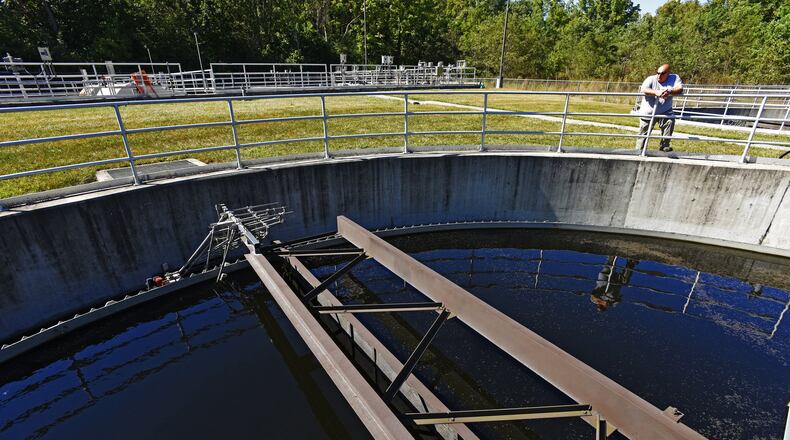“I don’t think people realize what an accomplishment it is to not have a rate change since 2009,” Commissioner Don Dixon said. “Show me any entity that can say that and still have a cash balance and a capital improvement budget.”
Commissioner T.C. Rogers asked about the fact that the county’s water purchase rate lock with the city of Hamilton expires within that time frame. Shelby said the county will use case balances to cover deficits before going for a rate increase.
RELATED: New county water and sewer director has some good news for your wallet
“We can push it up to the limit and have maybe a larger rate increase or maybe phase it in a little bit earlier than the limit but have much smaller ones,” she said “But we’re not there yet.”
Jim Logan, executive director of infrastructure for Hamilton, said in 2022 the rates can go up annually by the consumer price index or 3.25 percent, whichever is less, according to the contract.
Shelby’s budget for next year is $54.3 million in total projected expenses against $51.8 million in revenues. The department has about $19 million in reserves in the water funds and $28 million for sewer. No general fund monies support the budget.
“On the water side we’re dipping into reserves for the capital improvements,” Shelby told the Journal-News. “But we purposely accumulate reserves for that purpose.”
As of the end of 2018, the county had 40,047 water customers and 46,111 sewer customers. Shelby said from 2016 through the end of last year, the department added 888 water and 1,313 sewer users.
The county saved about $28 million when officials renegotiated a contract with Hamilton, over the life of the new deal. Beginning in 2015 the county’s rate decreased from $2.78 per thousand gallons to $1.66, the same rate the county paid to Cincinnati for some of its customers.
The new rate was locked in until 2022, and then after 2026, Hamilton is not allowed to charge more than 95 percent of what Cincinnati charges.
The county did not lower customer’s rates at that time because the county had absorbed about $3 million in increases per year and did not pass the cost to customers.
Every year the city of Oakwood surveys entities that provide water and sewer in southwest Ohio on rates charged, based on 22,500 gallons used in three months. This year Butler County ranked 10th with the combined quarterly bill of $202.37. The lowest quarterly bill of the 63 surveyed was Clermont County with $167.55 and the highest is in Yellow Springs with a quarterly bill of $571.96.
The county’s quarterly sewer bill at $84.14 is the fourth lowest and water at $118.23 was ranked 28th for this year.
“One is not the best place to be necessarily,” Shelby said. “If you’re not doing improvements that you should be doing to keep your system healthy.”
MORE: Butler County needs $3.6M in work on its buildings. Some could bring in more money.
Shelby said her water department will be replacing cast iron pipes in West Chester Twp. next year to the tune of $1.6 million. About $5 million in sewer department capital projects are planned, including $1.5 million for trunk sewer upgrades.
The department will retire $5.47 million in water debt and $3.7 million in sewer debt next year.
“In 2019 we did pay off a couple items, we had the Williamsdale project we paid off completely and early,” Accounting Supervisor Mark Medlar told the commissioners. “So that got a lot of debt off the books, over $1 million there. It’s continuing to dwindle down and as we keep doing that over the years, that frees up money to do cash projects.”
Commissioner Cindy Carpenter asked if the department can follow the commissioners’ debt-free lead.
“Any chance of paying that off early,” she asked. “I don’t know if that makes sense, but that’s sort of been a plan for our general fund debt.”
Medlar said most of their debt is locked-in and can’t be paid off early or has a zero percent interest rate so the department wouldn’t realize any savings.
The county’s general fund debt will be erased by the end of next year. That means the commissioners will have about $9 million to invest in other things like economic development county-wide and capital improvements.
About the Author
